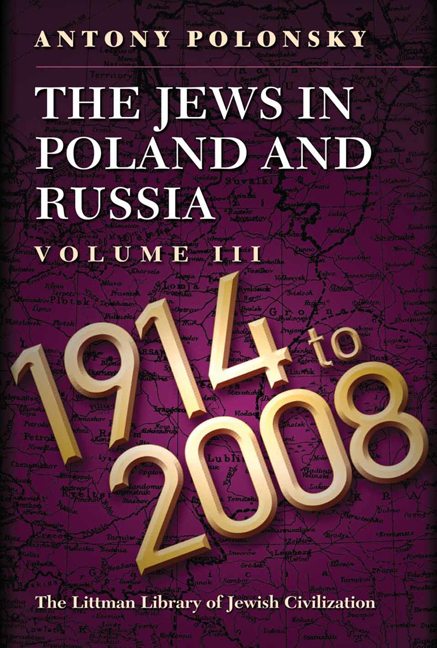Book contents
- Frontmatter
- Dedication
- Acknowledgements
- Contents
- List of Maps
- List of Tables
- Note on Transliteration
- Note on Place Names
- Maps
- General Introduction
- PART I FROM THE FIRST WORLD WAR TO THE SECOND
- PART II WAR AND GENOCIDE, 1939–1944
- PART III FROM THE END OF THE SECOND WORLD WAR TO THE COLLAPSE OF THE COMMUNIST SYSTEM
- EPILOGUE JEWS IN EASTERN EUROPE AND RUSSIA SINCE THE END OF COMMUNISM
- Conclusion
- Glossary
- Bibliography
- Index
13 - Contemporary Literary Responses to the Genocide
- Frontmatter
- Dedication
- Acknowledgements
- Contents
- List of Maps
- List of Tables
- Note on Transliteration
- Note on Place Names
- Maps
- General Introduction
- PART I FROM THE FIRST WORLD WAR TO THE SECOND
- PART II WAR AND GENOCIDE, 1939–1944
- PART III FROM THE END OF THE SECOND WORLD WAR TO THE COLLAPSE OF THE COMMUNIST SYSTEM
- EPILOGUE JEWS IN EASTERN EUROPE AND RUSSIA SINCE THE END OF COMMUNISM
- Conclusion
- Glossary
- Bibliography
- Index
Summary
WRITING was seen as a form of resistance to the dehumanization imposed on the Jews by the Nazis. In the words of Rafael Scharf, the literary works produced at this time were
literally written in blood. These are voices of men and women outside all law—man's law and God's law—they speak of suffering, of pain, of hope, and of its loss, of loneliness and helplessness, of the utter darkness of the soul. They bear witness with courage, tenacity, a will to live in conditions of terminal agony, death, one's own and that of everyone loved.
They are also the instrument of resistance. They proved one's humanity against all the efforts of the Germans to reduce the Jews to a subhuman level. Writing or merely listening to poetry offers a great breath of air, a momentary escape from the reality around. It was a kind of healing magic.
At the same time, writers sought to make sense of the tragic reality with which they were confronted and to link it with early cases of Jewish suffering and martyrdom. They wrote in all the languages employed by the Jews in the area. Indeed some writers switched languages in response to what they were encountering, the Hebrew writer Yitshak Katzenelson adopting Yiddish for his Dos lid fun oysgehergetn yidishn folk (The Song of the Murdered Jewish People, 1943) and the diarist Abraham Lewin abandoning Yiddish for Hebrew in his diary when he came to describe the mass murder of the Jews in Warsaw.
The term ‘literature of testimony’ is often used to describe the writing produced during and immediately after the Holocaust. These works are primarily Jewish, although there are non-Jewish testimonies, for instance the works of Tadeusz Borowski. The phrase is Elie Wiesel’s. In his words, ‘If the Greeks invented tragedy, the Romans the epistle and the Renaissance the sonnet, our generation invented a new literature: that of testimony.’2 Its aim was to record what had occurred. The historian Ignacy Schiper described the difficulty of doing so in the summer of 1943 to a fellow inmate in Majdanek, where he was to perish:
everything depends on who transmits our testament to future generations, on who writes the history of this period. History is usually written by the victor.
- Type
- Chapter
- Information
- The Jews in Poland and RussiaVolume III: 1914 to 2008, pp. 538 - 562Publisher: Liverpool University PressPrint publication year: 2012



